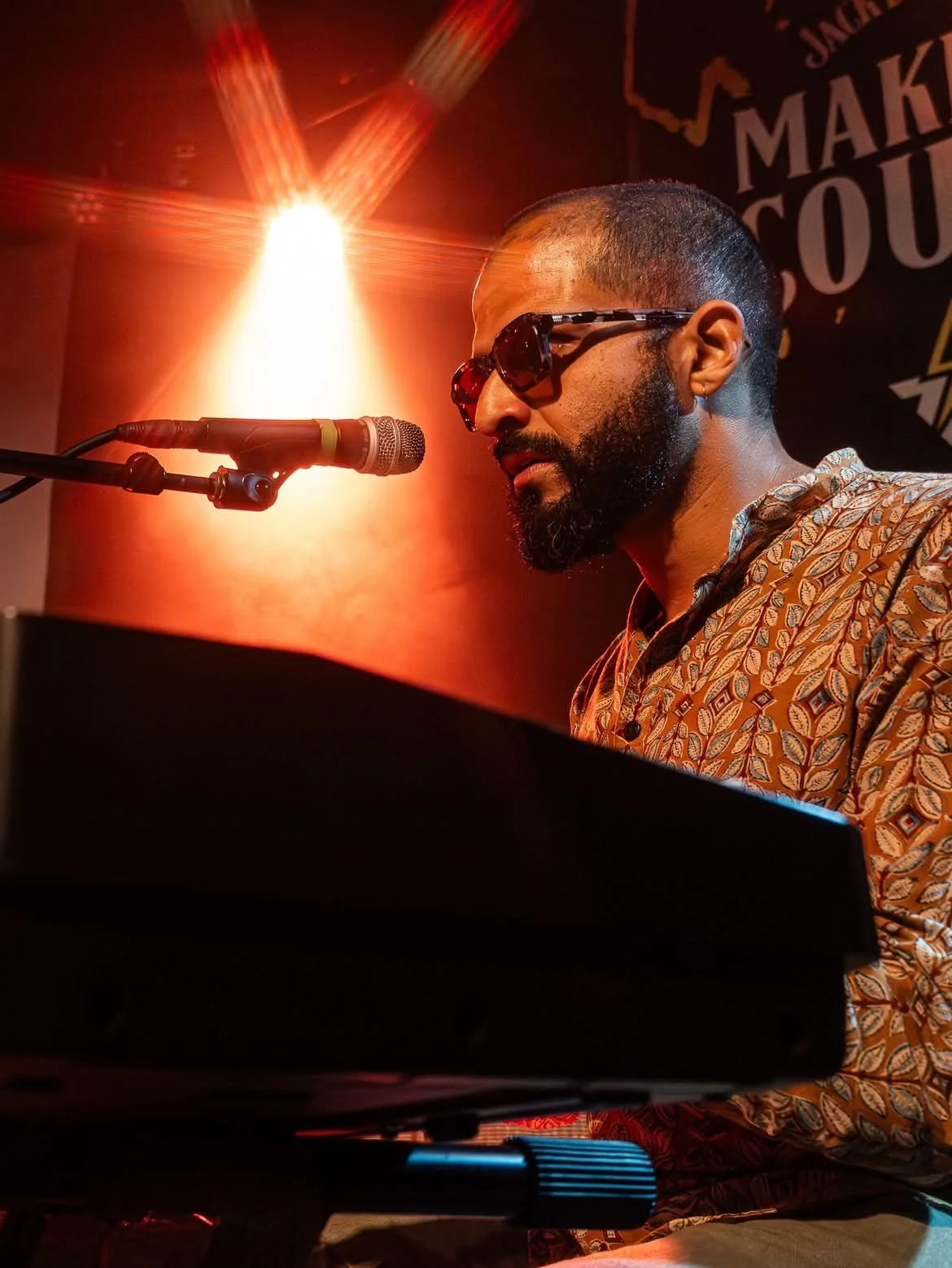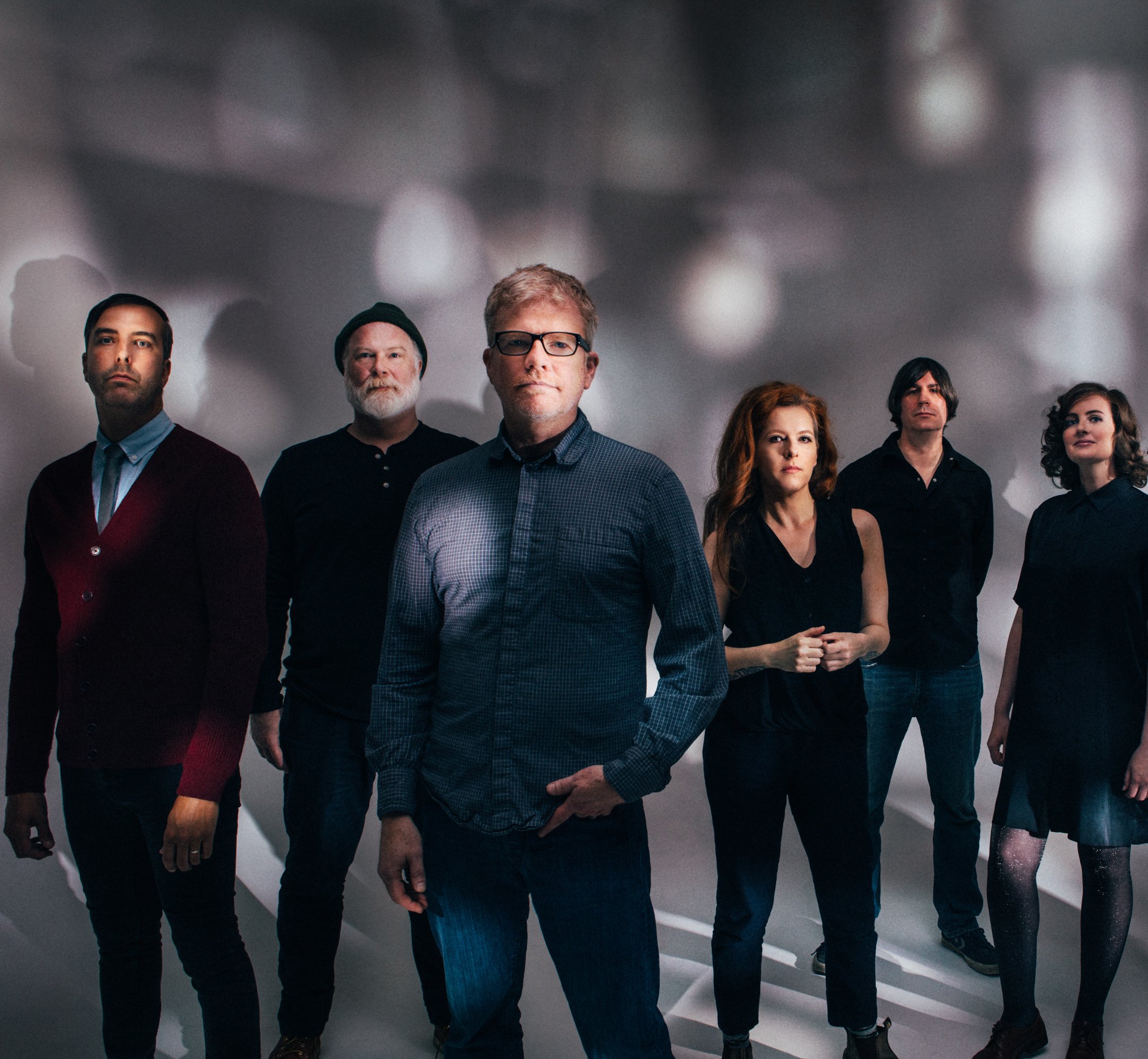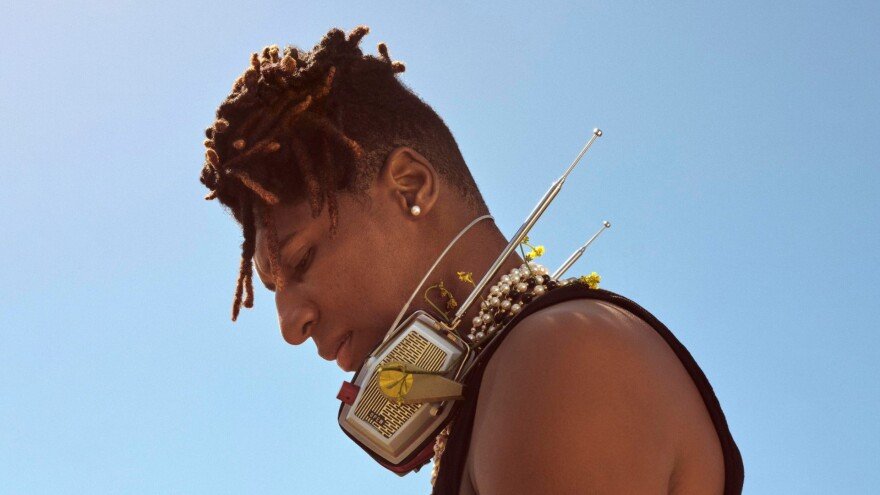"Oh My Great Green God" a Bold, Personal Album

Anuraag Pendyal believes in the album so much he released it in two forms including one as all the songs on one track to guarantee that people hear the story he’s telling.
It’s not obvious on first listen what holds Anuraag Pendyal’s Oh My Great Green God together. It opens with “nguity,” a groovy jazz funk instrumental with Pendyal on organ and Moses Eder on drums. It’s a cool little jam with an unexpected, spacey middle section, but it doesn’t prepare you for “mi queride,” a love song built on domestic details. The organ gives way to a banjo, the drummer takes five, and Pendyal sings with a fragile vulnerability that hints that the song is a post-mortem for their relationship.
The sequencing throughout the album doesn’t get simpler, but it’s not incoherent. Pendyal and his story is the album’s organizing factor. Whether that’s enough to hold a listening experience together is a fair question since listeners likely don’t know him or it, but Oh My Great Green God knows where it’s going.
Pendyal is best known for playing with Cyril Neville and Omari Neville, and he’s played a lot of styles of music around town. “Honestly, chances are you don’t know me from anywhere,” he admits, but he has been active and has a second project, deadbeatniks. Because it doesn’t sound much like Oh My Great Green God, it doesn’t make getting a handle on him or his output easier.
The album is, as “mi queride” hints, about a break up, and it reflects where he was at the time. It is, he says, “a reaction to the same events in my life—a break up—and some of it came out instrumental and some came out with lyrics and singing. It’s all evocative of that period in my life, and I set up the album in a way that I thought would flow well and tell the story of that time in a way.”
Pendyal probably hears the flow better than most listeners will. A second cool organ and drum groove creates an expectation that he’ll alternate instrumental and vocal tracks, but that doesn’t happen. The banjo, guitar and fiddle return later for “just a song” but other songs in-between break the sense that there will be some interplay there. The last two songs are solo piano pieces—the elegant “for daishi” and “rookerbish,” the latter in the New Orleans tradition.
Those jumps don’t reflect changes in inspiration or where he was in his musical journey, though. Pendyal says they were written and recorded at different sessions in a two-and-a-half year window. The different sounds were dictated by the story he was telling.
“I needed those different instrumentations and recording situations to capture the different feelings and textures I wanted,” he says.
Knowing that, the arc becomes clearer if not exactly clear, and Oh My Great Green God might land more easily without an appendix like this if Pendyal were farther along in his career. If we knew him better, we might know how to process “fat man,” a spoken word piece that feels like he means for it to have some kind of meaningful undercurrent, but it really just sounds like body shaming.
“trying non-monogamy” plays with some of the impulses that make cringe comedy work as Pendyal tries to process splitting up while sitting at the piano, framing it as “trying non-monogamy.” The attempts to intellectualize it are awkward, but at least partly deliberately so, and again, if Pendyal had a few more albums under his belt, it would be easier to gauge how much was deliberately cringe. No matter how funny you think the song is or isn’t, the pain the jokes try to obscure is clearly there.
“I think ‘trying non-monogamy’ is definitely humorous, just like the situation it describes can also be humorous and ridiculous while also being painful, emotional, and difficult,” he says. “Sort of bittersweet, maybe?”
It’s hard to be sure how to process the album’s range, so responding to it confidently is hard as well. I’d listen to an album of his organ/drum duets, which I suspect he could cut by the bucketload, but my guess is that the other stuff means more to him than those instrumentals.
Still, it’s exciting to hear an artist make bold, personal, even risky choices, particularly in the streaming era when songs more than albums rule. It doesn’t fit neatly in any box, but Pendyal clearly followed his muse. He believes so much in the story the album tells that he posted it in two forms on Bandcamp, one as you’d expect with all 11 songs, and OMGGG, which features all 11 songs in sequence on one track to ensure that listeners hear it as intended. It’s nervy, but again, I want to know what comes next from any artist with that kind of nerve.
And the title? “Something surprised me, and I let out an exclamation like ‘Man alive!’ or ‘Sweet Jesus!’ or something,” Pendyal says. “The person I was dating and traveling with at the time during which most of this music was born somehow misheard me and said, What did you say? “Oh My Great Green God”?’ And that seemed like a good title.”
Creator of My Spilt Milk and its spin-off Christmas music website and podcast, TwelveSongsOfChristmas.com.






